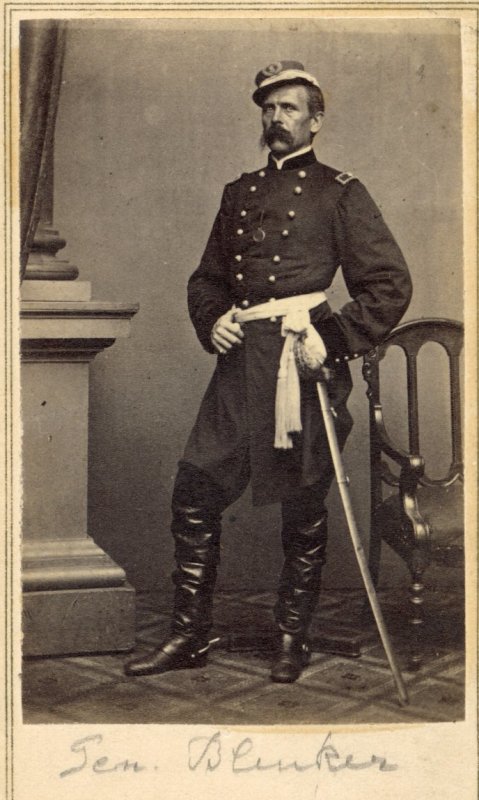8th New York Infantry
Item CDV-6277
Louis Blenker
Price: $250.00
Description
Louis BlenkerOn his arrival in the United States, he settled on a farm in New York, and ran a small business. Upon the outbreak of the Civil War he organized the 8th New York Volunteer Infantry Regiment, of which he became colonel. He was noted for his coverage of the retreat at Bull Run and for his performance in western Virginia at the Battle of Cross Keys. For his gallantry at Bull Run he was raised to the rank of brigadier general of volunteers.
But after Cross Keys a series of deficiencies plagued his command, the main accusation being carelessness with respect to supplies. There were also allegations of financial irregularities. In a letter to the Illinois Staatszeitung, Gustav Struve defended Blenker on this score, i.e. with regard to a charge that he got $100 a month from each of the sutlers he had licensed to service his troops. But the charges persisted. Stories appeared in the German-language press and the New York Tribune accusing Blenker's troops of looting the countryside of edibles and theft of items of no military worth. Blenker was defended by the New Yorker Criminal Zeitung und Belletristisches Journal, and some editors suggested that Carl Schurz was planning to supersede Blenker.[3]
Also Blenker had a love of pomp. When McClellan became general of the Army of the Potomac, Blenker led a procession to his headquarters. Yet there were credible testimonials to his organizational ability, and no one questioned his courage. However, his command became notable for the quantities of foreign nobility in its ranks, the climax coming when Prince Felix Salm-Salm joined his ranks, an affront to republicans like Karl Heinzen and Struve. Struve, also a member of Blenker's corps, resigned, and Heinzen broadcast protests in his newspaper, the Pionier.
The allegations reached the War Department, and when his appointment as a general reached the Senate for confirmation several senators repeated them: questionable finances, command hierarchies and distinctions more appropriate to Europe than to the United States, exploitation of his troops through the sutlers. Alexander Schimmelfennig, a fellow officer, referred to him as a "bum," and there was much controversy between supporters of Schurz, Blenker and Franz Sigel. Blenker was ultimately confirmed as a general, but his career was ruined.
Soon he was superseded by Sigel. He was mustered out of service March 31, 1863, and died in October of injuries sustained while with his command at Warrenton, Virginia, leaving behind his wife, son and three daughters in dire circumstances. Blenker died in poverty and there was no proof he profited from the sutlers' trade. Some members of his staff were convicted for financial irregularities however. McClellan continued to esteem him as an officer.
Information Credit: Wikipedia

